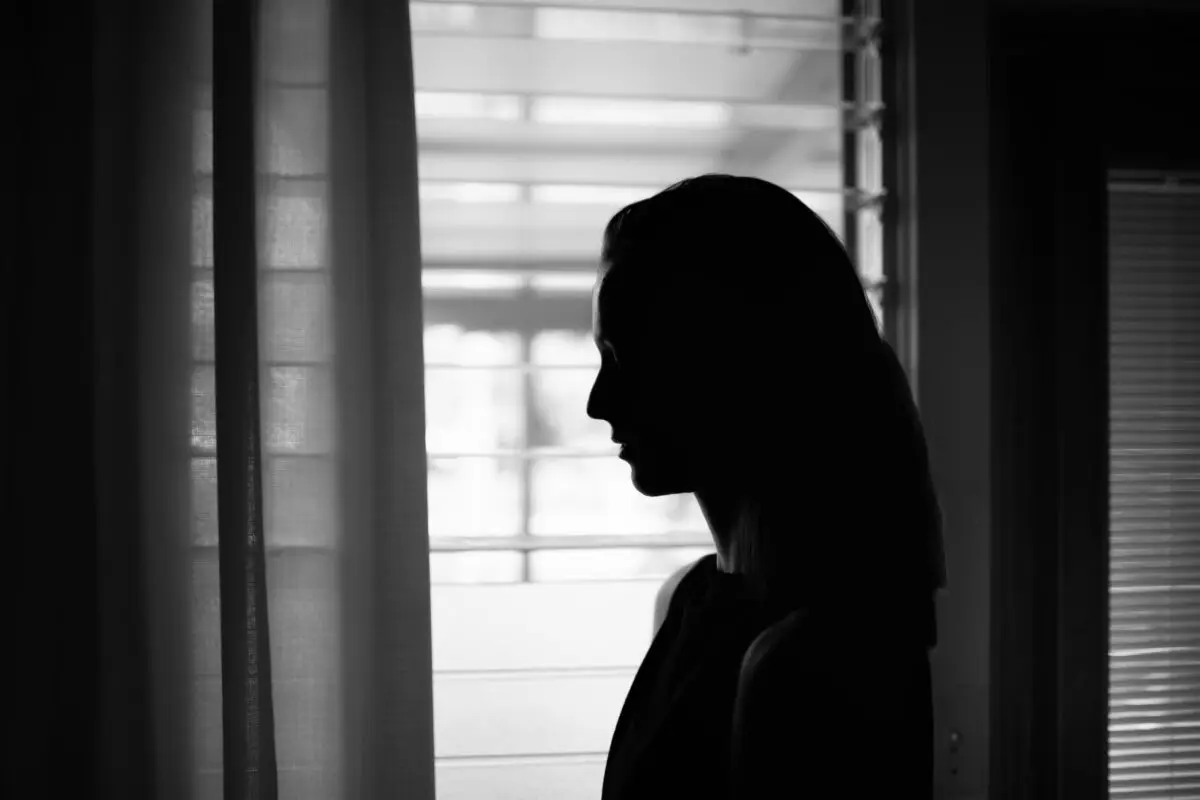In a revealing conversation that delves deep into the challenges of motherhood and mental health, Lisa Rinna has bravely opened up about her experiences with postpartum depression. These candid admissions not only shed light on her personal battles but also explore how this condition affected her marriage to actor Harry Hamlin. With the chaos of new motherhood, feelings of anger and frustration emerged, creating tension in their relationship. This account isn’t merely Rinna’s story; it echoes the struggles faced by many women who experience postpartum depression while juggling the responsibilities of family and career.
Lisa Rinna’s Journey Through Postpartum Depression
Lisa Rinna, a prominent figure in the entertainment industry, candidly shared her difficult journey with postpartum depression, a condition that many new mothers face but often remain silent about. This mental health struggle began after the birth of her first daughter, Delilah, in June 1998. For over fifteen months, Rinna battled feelings that left her feeling “absolutely hopeless.” Her experience casts a spotlight on the fact that postpartum depression is not merely short-lived or a fleeting phase; it can linger and seep into various aspects of life.

The Unseen Shadows of Motherhood
Postpartum depression (PPD) is characterized by intense feelings of sadness, anger, and irritability that can overwhelm new mothers. Rinna described it as living under “a huge dark cloud” that followed her relentlessly. This metaphor resonates deeply, as it captures the essence of what many mothers silently endure. The idea of constantly battling an unseen force reveals the complexity of this mental health condition, which can often be dismissed or misunderstood.
- Feelings of hopelessness
- Anger towards oneself and others
- Hallucinations and intrusive thoughts
- Physical symptoms such as fatigue and anxiety
Even as she poured love into her family, the struggles persisted. Rinna’s postpartum depression resurfaced with even greater intensity following the birth of her second daughter, Amelia, in 2001, leading to another phase of overwhelming despair.
The Tipping Point in Their Marriage
The impact of Rinna’s depression did not solely affect her mental state. It placed immense strain on her marriage with Harry Hamlin. In their podcast “Let’s Not Talk About the Husband,” Hamlin recounted a particularly alarming moment during Rinna’s struggle. He vividly recalled her intense emotional outbursts that hinted at her deeply troubled mental state. Rinna, in a moment of vulnerability, supposedly threatened to harm herself and even Harry. “You better call your OB-GYN right now,” Hamlin recalled saying, as he recognized the severity of her condition.
This episode illustrates how postpartum depression can shake the foundations of even the strongest relationships. New parents often find themselves in uncharted territory, where communication becomes vital yet exceedingly difficult. The emotions that accompany PPD can create a chasm that feels insurmountable. Rinna’s experience showcases the importance of awareness and open dialogue in relationships affected by mental health challenges.
The Importance of Acknowledging Postpartum Depression
Understanding postpartum depression and recognizing its symptoms is crucial for new mothers and their support systems. According to the Office on Women’s Health, many women do not even realize they are suffering from PPD until well after the fact. This lack of awareness perpetuates the stigma surrounding mental health, particularly postpartum conditions. Rinna’s public disclosure can serve as a clarion call for others experiencing similar battles.

Breaking the Stigma Around Mental Health
With increasing awareness around mental health in society, discussions about postpartum depression are becoming more common. It’s critical for both partners in a relationship to understand that these feelings aren’t merely mood swings but are manifestations of a serious medical condition. Lisa Rinna’s frankness breaks the silence that often surrounds these discussions, encouraging other women to seek help without shame.
- Seek professional help if symptoms arise
- Communicate openly with partners and loved ones
- Educate oneself about postpartum conditions
- Join support groups for shared experiences
By addressing her struggles publicly, Rinna not only stands as a beacon of hope but also normalizes the conversation. Her journey resonates with mothers worldwide, making it imperative to create spaces for dialogue about mental health and postpartum challenges.
Support Systems in Place
Rinna encourages mothers to lean on their support networks, emphasizing that isolation can exacerbate feelings of depression. It’s crucial for partners, family members, and friends to be aware of the signs of PPD and provide necessary support. In Rinna’s case, her husband Harry Hamlin played a pivotal role during her darkest times. His awareness and intervention highlighted the importance of vigilance in relationships, particularly during significant life transitions like becoming parents.
Professional help, including therapy and medication, proved beneficial for Rinna. She reported that after being prescribed antidepressants, she experienced immediate relief. This underscores the necessity of seeking proper medical intervention.
Emotions in the Wake of Postpartum Depression
Feelings of anger and frustration often accompany postpartum depression. Rinna detailed experiencing horrifying hallucinations and intrusive thoughts that left her feeling detached from herself. “Looking back, I was completely psychotic,” she admitted in a sober reflection of her struggles. These feelings do not equate to a mother’s love for her children, as Rinna clarified that she never feared harming either Delilah or Amelia.
The Complexity of Maternal Love and Mental Health
Women grappling with postpartum depression often confront a chasm between their internal struggles and their external expressions of motherhood. They may experience overwhelming love for their children while simultaneously feeling engulfed in despair. This contradiction can be deeply isolating. Many women feel compelled to mask their pain, fearing judgment or misunderstanding from those around them.
- Mothers often face societal pressures to portray “perfect” moods
- Emotions related to motherhood can be conflicted and confusing
- Support can foster healthier emotional expressions
- Communication is key for reducing stigma
Rinna’s acknowledgment of these conflicting emotions reflects a broader sentiment among women who endure mental health issues. It is essential to destigmatize feelings of anger and frustration. Recognizing these emotions as part of the human experience can empower mothers to share their experiences openly without fear of judgment.
Finding Hope Beyond the Struggles
Ultimately, the journey through postpartum depression can guide individuals toward a path of healing and resilience. Rinna’s eventual path toward recovery involved actively confronting her mental health issues and advocating for others experiencing similar struggles. She serves as a reminder that seeking help and tackling mental health challenges can lead to significant improvement.
Women need to understand that they do not have to navigate postpartum depression in silence. The support available is invaluable, from professional help to community connections. In this climate where mental health is gaining more acknowledgment, sharing struggles can open doors to healing for many.
Reflections on the Strain in Relationships
Amidst the challenges of postpartum depression, the dynamics of the couple’s relationship often shift dramatically. Lisa Rinna and Harry Hamlin have openly discussed how their marriage was tested during this difficult period. Communicating feelings becomes more crucial than ever when dealing with external pressures and internal struggles.

The Need for Open Communication
One of the underpinning factors of a resilient relationship is communication. During her battle with postpartum depression, Rinna’s outbursts led to pivotal conversations between her and Hamlin. They learned to express their fears, challenges, and emotions candidly, thus paving the way for better understanding and support.
Couples facing similar challenges must prioritize direct communication to navigate the storms of mental health difficulties. Sharing feelings can foster empathy and compassion, allowing for emotional connection even amidst the chaos.
- Establish regular check-ins for emotional status
- Be honest about fears and uncertainties
- Practice active listening to understand each other’s struggles
- Engage in couple’s therapy if needed
The evolution of the couple’s relationship through these adversities indicates how shared experiences—no matter how painful—can strengthen bonds. Understanding and supporting each other amid mental health challenges can lead to a deeper connection.
Hope for the Future
Rinna’s journey through postpartum depression embodies a universal message about strength, resilience, and the quest for understanding in relationships. While the road is fraught with struggles, emotional turmoil, and moments of despair, it is also peppered with opportunities for growth, healing, and renewed intimacy. As Rinna and Hamlin demonstrate, it is possible to emerge from these challenges with newfound strength and commitment.
As Lisa Rinna continues to advocate for mental health awareness, her story can inspire others to speak out, seek help, and embrace their journey. She symbolizes the hope that exists beyond struggles, casting light on the importance of mental health discussions in the context of motherhood and relationships.
Hi, I’m Sarah, a 30-year-old journalist with a passion for storytelling and uncovering the truth. I strive to bring important issues to light and connect with my audience through compelling narratives.



